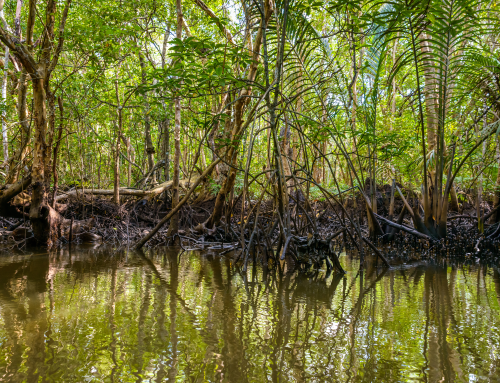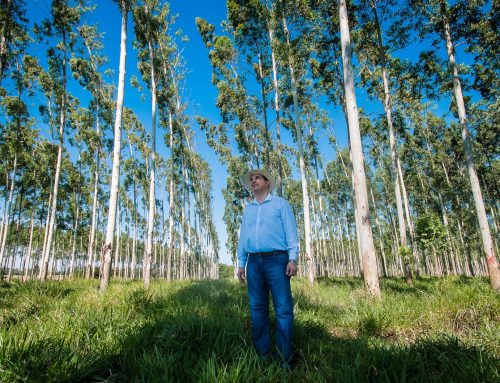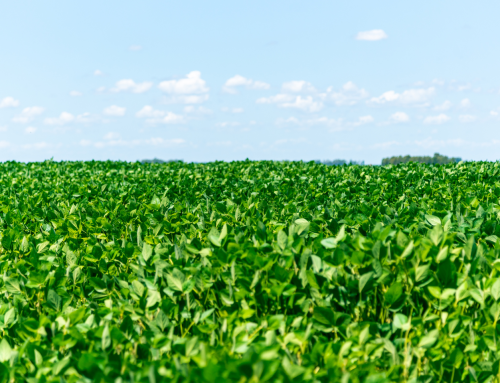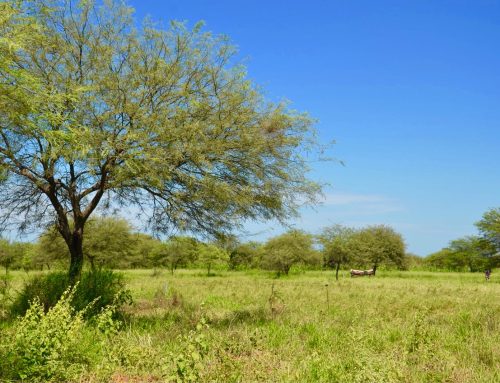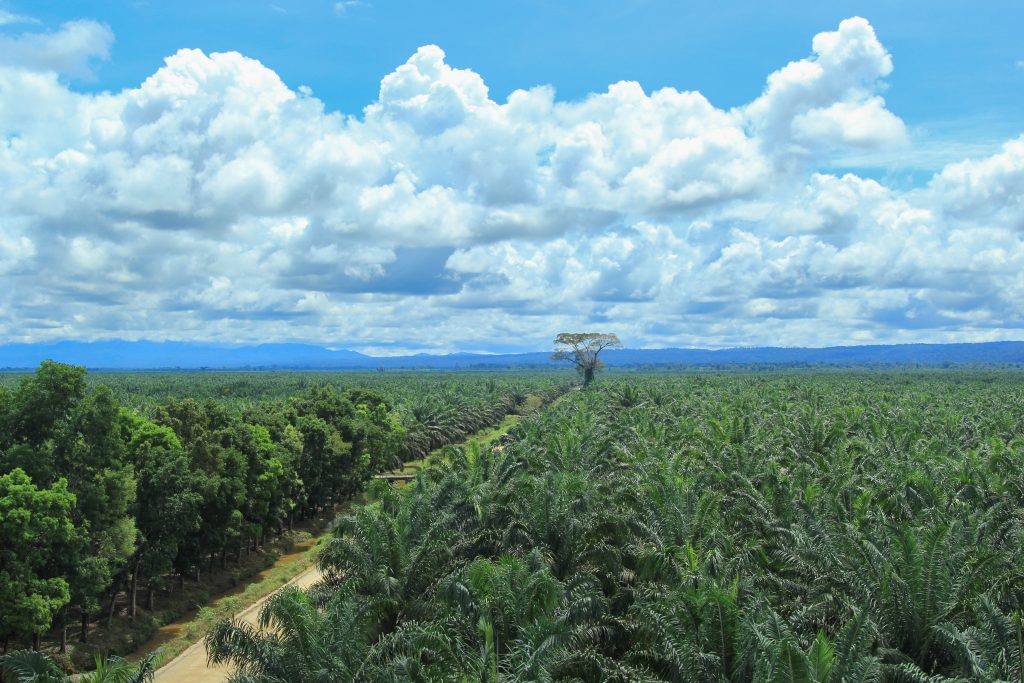
Agusriady Saputra © UNDP Green Commodities Programme
When global companies set out over 15 years ago to ensure transparency and sustainability in the palm oil supply chain, it quickly became clear that just mapping the supply chain, let alone transforming it, was going to be a Herculean task. Even now, in 2022, corporate giants have not yet been able to eliminate deforestation from palm oil production, despite their best efforts. That speaks to the complexity of commodity supply chains – and the need to address multiple levels, sectors, and issues simultaneously, which is far more than any one stakeholder can do alone. Understandably, most supply chain sustainability projects avoid issues that look too complex to change – like global commodities transactions or national subsidies – and instead, target activities they can control. But thorny issues like these must be tackled, regardless of how hard it is. To achieve transformation, we need to address supply systems, not just supply chains. That’s why the Good Growth Partnership (GGP)[1] and our Integrated Approach engage with systems as complete units, actively seeking out potential barriers to change, and working with those realities, not against them. Our philosophy – supported by our experience – is that unpacking and addressing the difficult, complex, inconvenient stuff is much more successful in the long run than trying to circumvent them. It has not been easy, or immediately successful every time, but by applying the Integrated Approach and by learning lessons along the way, the changes we have already seen in practices, policies, finance flows, and mutual cooperation in commodities production, are more effective, and promise to be longer-lasting than traditional approaches that try to break systems down into individual siloes.
Change is needed across many different sectors to make supply chains deforestation free – in policy and governance, finance, demand, and at the producer level, as well as effectively monitoring and evaluating outcomes. Collaboration is at the heart of tackling this complexity, but often stakeholders do not understand the value or do not have the capacity to effectively collaborate or to link interventions to the multiple variables and influences throughout the system. The GGP has developed several resources to help stakeholders engage more effectively in multi-stakeholder collaboration, for example with the GGP’s Value Beyond Value Chains (VBV) guidance note. This helps companies and governments strengthen public-private collaboration for sustainable agriculture production, giving tangible advice on how to enable sustainable production. The VBV guidance note is designed to help companies engage in multi-stakeholder initiatives in commodities producing countries. It also recommends ways to improve collaboration between governments, multilateral organisations, civil society organisations, and donors.
Another area where the GGP has given support is in creating the legal and regulatory framework for ecological sustainability in the palm oil supply chain. This is essential because good intentions in improving supply chains can be undermined if land use permits or tax incentives encourage ecologically unsustainable practices, or if there are no consequences for encroachment onto protected ecosystems. For supply chains to be ecologically sustainable, a broad network of mutually supportive and coordinating structures, norms, policies, and commitments need to be in place, which extend far beyond the direct activities of corporations. The journey taken by both Indonesia and Liberia in their commitments to the sustainability standards has been an important step in the process of national policy development in responding global community preference, as well as the international market and demand. With support from the GGP and partners, Liberia signed their National Interpretation to the RSPO in 2021, establishing a framework of Principals and Criteria, as well as performance indicators, compliance guidance, and assessment tools to guide the production of sustainable palm oil. This certification framework, which helps guide investment, participation, and growth, puts Liberia on the road to sustainable palm oil – and that product can be marketed and sold in the international market. In April 2022 Liberia also launched its National Oil Palm Strategy and Action Plan (NOPSAP) developed through the National Oil Palm Platform of Liberia, a multi-stakeholder forum, putting sustainable palm oil production front and centre of Liberia’s national and inclusive rural economic strategy, putting sustainable palm oil production front and centre of Liberia’s national and inclusive rural economic strategy.
_____________________
[1] Working across production, financing and demand, the Good Growth Partnership (GGP) convenes a wide range of stakeholders and initiatives to reduce deforestation and enable sustainable development. In its pilot phase (2017-2022), the GGP was funded by the Global Environment Facility, led by the United Nations Development Programme and implemented in collaboration with Conservation International, the International Finance Corporation, UN Environment and World Wildlife Fund. It focused on three global commodity supply chains – soy, beef and palm oil – and four countries associated with them – Brazil, Paraguay, Indonesia and Liberia.
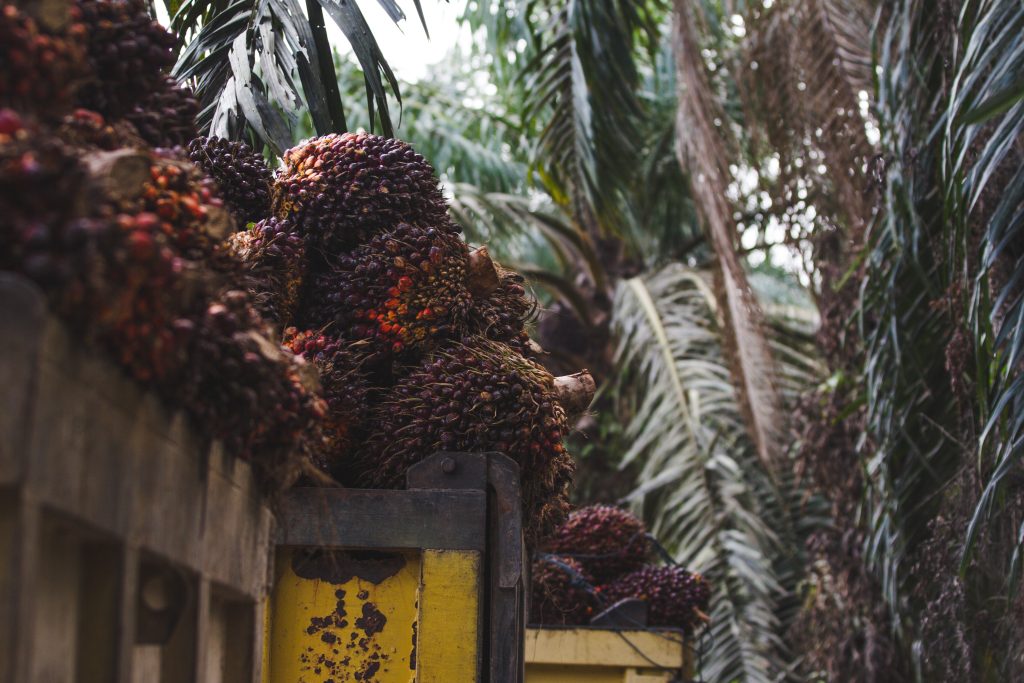
Agusriady Saputra © UNDP Green Commodities Programme
In Indonesia, the GGP contributed to facilitation of the signed National Action Plan on Sustainable Palm Oil (NAP SPO) in November 2019, extending and strengthening the base for policy coordination between previously-disparate ministries. Its implementation already led to many other positive outcomes, including the extension of measurement, reporting, and verification of greenhouse gas emissions reduction to palm oil plantation, and technical and financial support for smallholders. The GGP has provided an essential coordinating role in these activities, especially by supporting the activity of the multi-stakeholder forum, which has been a crucial space for developing the action plan in a collaborative manner.
“Transforming a vital economic sector like palm oil in Indonesia is a hugely complex task. Not only did we have to bring together stakeholders at the national level from government, the private sector, smallholder farmers and civil society, we had to do the same at every geographical level – regional and local … [In addition] all the government departments and ministries … had been working in isolation from one another, even though they all have a part to play in transforming palm oil … UNDP’s skill in making inter-ministerial connections was essential here.”
Ibu Musdhalifah Machmud, Deputy Minister Coordinating Ministry for Economic Affairs of Indonesia, 2021
However, providing a sustainable product is only part of the equation: there also needs to be a corresponding demand, which can only come from agreement between buyers and sellers (and producer and market countries) of how sustainable agricultural commodities are defined. Supporting improvements in production standards by boosting understanding among consumers of palm oil is therefore an important component of forging a sustainable palm oil strategy. Awareness of the environmental impacts of non-sustainably produced palm oil varies from country to country, and community to community. Working at the consumer side of one of the biggest producer countries, Indonesia, the GGP Integrated Approach pilot has helped to increase retail consumer demand for sustainable palm oil, so that in 2021, 10% more Indonesian consumers were aware of the negative impacts of unsustainable palm oil than in 2019. However, the market for palm oil doesn’t start and stop in producer countries, and nor does it stop with retail consumers in the shops. As with beef and soy, China is one of the largest consumers of palm oil[2], and downstream companies importing the product in China often struggle to understand its impact on deforestation and land-use conversion. Addressing understanding in such an important market is essential. Responding to that knowledge gap, GGP worked with NGO partner Proforest to provide the Palm Oil Toolkit in both English and Mandarin, an accessible guide, as well as training workshops, for downstream palm oil companies to better understand responsible sourcing and production. Meanwhile, the GGP has also been facilitating dialogues between producer and consumer countries and stakeholders on what is needed on both sides to support deforestation and conversion free supply chains.
___________________
[2]https://www.indexmundi.com/agriculture/?commodity=palm-oil&graph=imports
https://www.reuters.com/markets/us/chinas-soybean-imports-jan-feb-rise-41-previous-year-customs-2022-03-07/
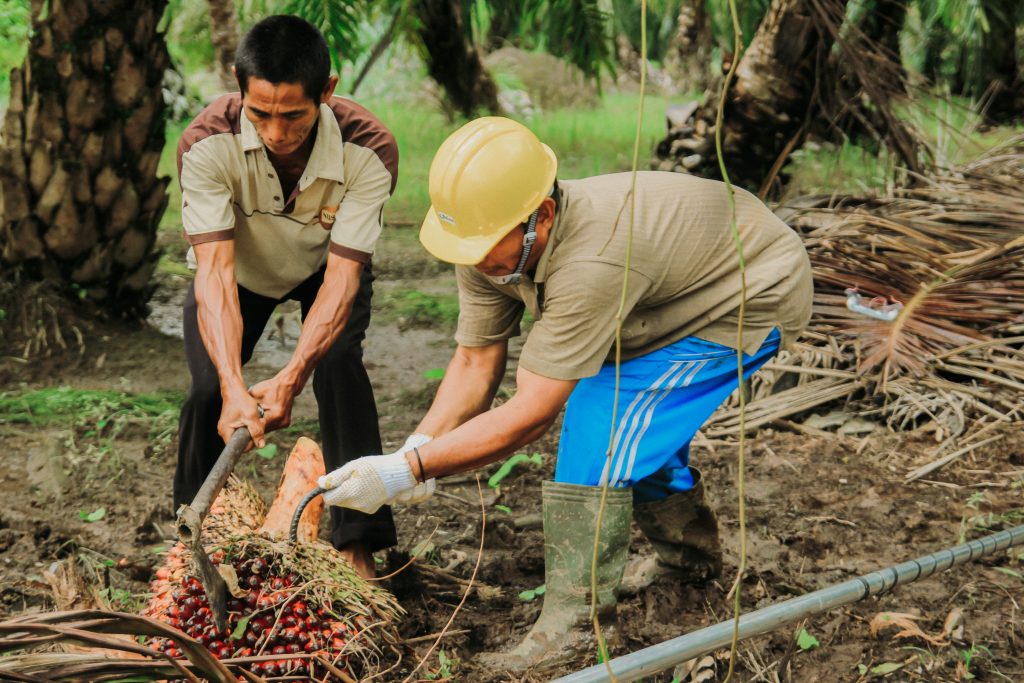
Agusriady Saputra © UNDP Green Commodities Programme
Much of the deforestation in Indonesia, however, and the logging, mining, and damaging agricultural practices in Liberia, have been facilitated by international finance with insufficient safeguards for ecological sustainability. To address this – focusing initially on outcomes in Indonesia, though the effects will ripple throughout the supply chain system – we have been working with finance alongside production and demand, to ensure that international investment decisions recognise how they impact on producer demands, constraints, and incentives, as well as land-use policy frameworks and enforcement challenges. We have helped investors and financial institutions better understand the context of multiple, interlinked supply chain issues with training and support in sustainable finance, going beyond the scope of more traditional donor funding of finance initiatives. Sustainable finance directly linked to the supply chains and production activities has much greater potential to contribute to deforestation- and conversion-free development, with positive implications for jobs on the ground for farmers, traders, logistics workers, and countless people through the supply chain.
Bringing this awareness to the Asian finance sector has been a major GGP achievement in this area. The Asia Sustainable Finance Initiative (ASFI) Academy supported by the GGP, for example, trains finance professionals on responsible investing. At the national level, the GGP has been working with the Indonesia Sustainable Finance Initiative (IKBI) network of banks on defining and deploying a risk management strategy for deforestation, to guide investments away from practices known to cause deforestation. It turned out that although banks were often aware of deforestation and the damaging effects of commodity production, few knew what to do about it, or how to advise clients differently, either to avoid toxic investments or to offer options that were more environmentally sustainable. We hope to continue this vitally important work at both regional and national scales, raising awareness and helping to create the frameworks to redirect powerful finance away from deforestation, and towards sustainable agricultural practices.
Consumer and financial institutions training, knowledge-sharing and learning among producer countries (for example through the GGP’s Community of Practice, the Green Commodities Community), and ground-level, global, and local advocacy and enabling work, are extremely important, not only to ensure that behaviours change at all levels, but that their social and economic impacts are positive – and therefore sustainable. Connecting ground-work to global interventions is crucial given the multiple scales at which supply chains operate – from local to national and global – but also to facilitate scaling up and replication.
The GGP is committed to working with governments, companies, communities and partners, to build on collective experiences, everyday realities, and a shared, strong vision of an ecologically, socially, and economically sustainable future for agricultural commodities. There is so much more to do to increase capacity for and awareness of sustainable practices, at the producer level and throughout the palm oil supply chain, from the demand side (whether retail consumers or downstream companies), to the legal and regulatory frameworks at national, subnational, and global levels, reaching right out to the transaction side with financial institutions, as well as individual- and institutional investors. Working at this integrated and programmatic level makes GGP a strategic initiative and we look forward to finding funding partners interested in investing in such an approach.

